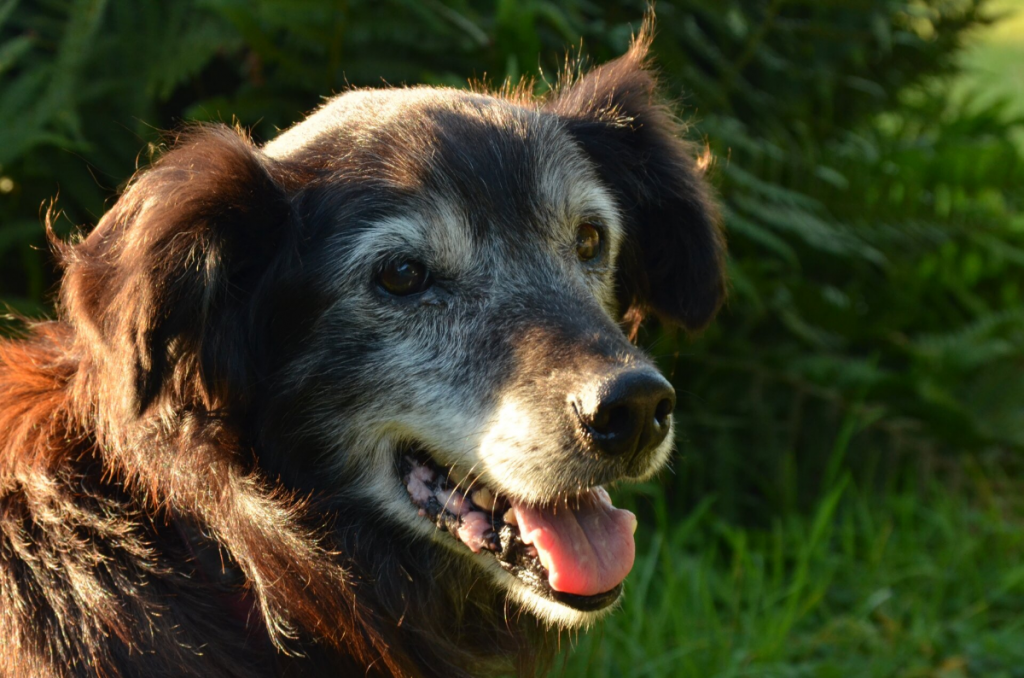
At what age are dogs considered seniors? Does it vary by breed? How do you care for an older pup? Do our elderly canine companions need less exercise? A different diet? Chances are, you have A LOT of questions about keeping your furry friends safe and comfortable well into their golden years. Keep reading for the answers to these and other senior dog FAQs!
Dogs are generally considered seniors when they reach 7-8 years of age. However, the age at which a dog is considered senior can vary depending on several factors such as breed, size, and overall health. Smaller dogs tend to live longer than larger breeds, and they may not become seniors until they are 10-12 years old. On the other hand, larger dogs have shorter lifespans, and they may become seniors as early as 5-6 years old.
It's important to remember that while age is a significant factor in determining whether a dog is a senior, it's not the only factor. Each dog is unique, and factors such as lifestyle, genetics, and overall health can influence when a dog is considered a senior.

Yes, the age at which dogs are considered senior can vary by breed. As we mentioned earlier, smaller breeds tend to live longer than larger breeds, and they may not become seniors until they are 10-12 years old. In contrast, larger breeds have shorter lifespans, and they may become seniors as early as 5-6 years old. Here are some examples of how age can vary by breed:
There are several signs that indicate that a dog is a senior. The most obvious sign is the appearance of grey hair, which typically starts around the muzzle and gradually spreads across the body. However, other signs of aging include slower movements, less enthusiasm for exercise and play, difficulty getting up or climbing stairs, and changes in eating and sleeping patterns.
You may also notice that your dog's eyesight and hearing aren't as sharp as they used to be. If you're unsure whether your dog is a senior, consult with your veterinarian. They can perform a physical exam and recommend any necessary tests to determine your dog's age and overall health.

Senior dogs should see the vet at least twice a year for routine checkups. Senior dogs are prone to developing health problems such as arthritis, dental issues, and vision or hearing loss. Regular visits to the vet can help detect these issues early and ensure that your dog receives prompt treatment.
Your veterinarian may recommend more frequent visits if your senior dog has any pre-existing conditions or is on medication. It's important to keep up with your older dog's veterinary care to ensure that they remain healthy and happy for as long as possible.
Some common health issues in senior dogs include arthritis, which can cause joint pain and stiffness, making it difficult for dogs to move around comfortably. Dental problems are also common in senior dogs. They can lead to tooth loss, gum disease, and infection if left untreated. Obesity is another issue that can arise in senior dogs, as their metabolism slows down, and they may become less active.
Senior dogs may also experience vision and hearing loss, making it more difficult for them to navigate their surroundings. Finally, cognitive decline, or dementia, can occur in some senior dogs, causing them to become disoriented, forgetful, and agitated.

Regular health screenings are an essential part of maintaining your senior dog's health. Your veterinarian may recommend bloodwork and urine tests to check for underlying health conditions such as kidney disease, liver problems, or diabetes. Senior dogs may also benefit from a thyroid screening to check for hormonal imbalances. Additionally, screening for cancer, including a physical examination and diagnostic imaging, may be recommended to catch any potential issues early.
Eye exams and hearing tests can help detect any vision or hearing loss that may be occurring. Finally, a thorough dental exam can help identify any dental issues, such as periodontal disease, that may be affecting your senior dog's overall health. Regular health screenings can help detect any underlying health issues before they become more serious. This allows for prompt treatment and a better chance of a positive outcome.
Yes. Senior dogs should continue to receive routine vaccinations to help protect them against common illnesses and diseases. Vaccinations are typically given on a schedule determined by your veterinarian based on your dog's individual health and lifestyle.
Core vaccinations, such as rabies, distemper, and parvovirus, are recommended for all dogs regardless of age. In addition to core vaccinations, your veterinarian may recommend additional vaccinations based on your senior dog's lifestyle and risk factors.
For example, dogs that spend time in boarding facilities may need a vaccination for kennel cough. Or dogs that spend time in wooded areas may need a vaccination for Lyme disease. Your veterinarian can provide recommendations for the appropriate vaccinations for your senior dog. Additionally, regular boosters may be necessary to ensure continued protection against these diseases.
Yes. It's important to adjust their exercise routine to accommodate any physical limitations they may have. While exercise is still important for senior dogs, they may not be able to handle the same level of activity they did when they were younger. Low-impact activities can still provide the necessary exercise without causing undue stress on their joints. Try short walks, swimming, or gentle play.
It's also important to monitor your senior dog during exercise and take breaks as needed. If you notice any signs of discomfort or excessive fatigue, it may be time to reduce the intensity or duration of their exercise routine. Consult with your veterinarian for recommendations on the best exercise routine for your senior dog based on their individual health and mobility.

Senior dogs often have different nutritional requirements than younger dogs and may need a specialized diet to support their health. As dogs age, they may require fewer calories due to a slower metabolism and a decrease in activity level. Senior dog food formulas are often lower in calories and higher in protein to support their muscle mass.
Additionally, seniors may benefit from diets containing supplements to support joint health and cognitive function. More on that in a moment.
Dogs with health condition such as kidney disease may also need a specialized diet to support their needs. Consult with your veterinarian for recommendations on the best diet for your senior dog.
Senior dogs may benefit from certain supplements to support their overall health and well-being. For example, joint supplements containing glucosamine and chondroitin can help support mobility and ease joint pain and stiffness. As you know, these are common issues in older dogs.
Omega-3 fatty acids may also be beneficial in reducing inflammation and supporting cognitive function. Supplements containing antioxidants, such as vitamin E and vitamin C, can help support the immune system and protect against cellular damage caused by free radicals.
It's important to consult with your veterinarian before adding any supplements to your senior dog's diet, as some supplements may interact with medications or be contraindicated for certain health conditions. Your veterinarian can recommend specific supplements and dosages based on your senior dog's individual needs.

Caring for a senior dog requires some adjustments to their daily routine to ensure they remain healthy and comfortable. One of the most important things you can do is to provide them with a healthy, balanced diet that meets their specific nutritional needs. Senior dogs may also benefit from supplements to support joint health and cognitive function.
Regular exercise is important to keep them active, but it's important to choose low-impact activities that won't cause undue stress on their joints. Maintaining good dental hygiene and keeping up with regular veterinary checkups are also crucial.
Finally, providing your senior dog with a comfortable and safe living space that is free from hazards, such as stairs or slippery floors, can help them age gracefully and comfortably.
Making a few simple changes to your home can help make your senior dog more comfortable as they age. One common issue for senior dogs is mobility, so providing comfortable and supportive bedding can help ease any joint pain or stiffness.
Orthopedic dog beds or memory foam mattresses can provide the necessary support for your senior dog's joints and may help improve their quality of sleep. You may also want to consider providing additional padding on any hard surfaces to help prevent injury from falls. Ramps or steps can also make it easier for senior dogs to access furniture or navigate stairs.
In addition to providing comfortable bedding and improved mobility, you may want to consider making changes to your home environment to minimize any potential hazards for your senior dog. For example, removing any clutter or tripping hazards from floors or stairs can help prevent falls.
Non-slip mats or rugs can also provide better traction for senior dogs on slippery surfaces. It may also be helpful to keep food and water dishes at a height that is comfortable for your senior dog to reach, or provide a raised feeder. Taking these steps can help create a safer and more comfortable environment for your senior dog to enjoy their golden years.
Remember, veterinarians are always your best resource for answering all of your questions about senior dogs! I recommend making a list of questions to take with you at your dog's appointment.
What do you think? At what age are dogs considered seniors in your opinion? Share below!


info@seniorpups.com
Copyright 2023 – All Rights Reserved by Senior Pups